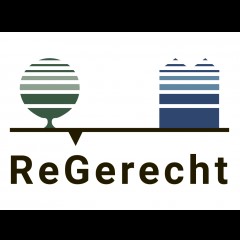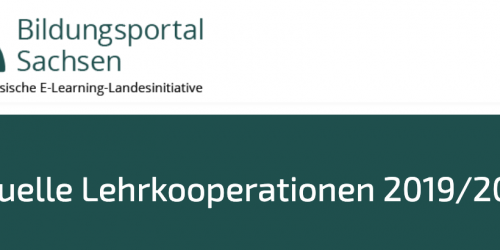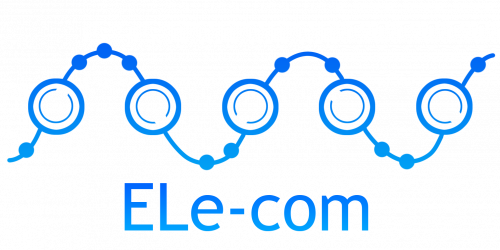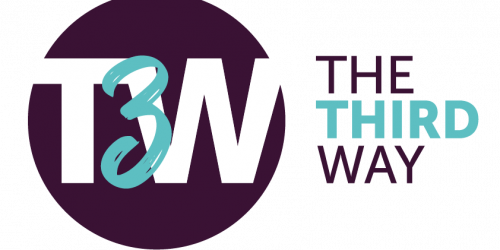OLGA: Promotion and evaluation of participation and citizen science projects
Regional sustainable development aims to reduce the economic and social distance between rural and urban areas, based on the political goal of equal living conditions in all areas of Germany. The OLGA project is therefore trying to interlink the Dresden project region more intensively, strengthen regional economic cycles, optimize ecosystem functions and promote mutual understanding within the population. OLGA stands for "optimization of land use on water bodies and on agricultural land for the sustainable development of the Dresden region based on hydrological, forestry, environmental psychology and economic research and implementation work". The thematic focus of the project is therefore on the interrelated areas of energy, nutrition and water. These are basic components of human needs. The limited resource of land in particular can lead to conflicts between actors in the face of sustainable and economically viable land use. Four interlinked modules ((1) watercourses/wood use, (2) distribution channels/biodiversity, (3) participation/citizen science, (4) integration/project management) are intended to generate solutions and options for action for regional and sustainable development in the Dresden area. Science, civil society, business and partners from municipalities are working closely together.
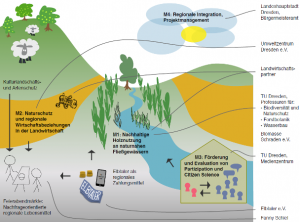
Fig. 1: Project and cooperation partners with essential project contents (modules: M1 to M4).
Module 3, which is located at the media center, deals with the conception and evaluation of civil society participation and citizen science measures, particularly in the field of environmental psychology. Citizens are actively involved in the work of the project. This participation is systematically researched within Module 3. Potential motivators such as gamification approaches, monetary incentives, further training, nudges, etc. must be identified and established in general and specifically for regional citizen science implementation. This process is also evaluated within those sub-projects of OLGA with citizen science components.
In Module 3, a Collaboration with the Environmental Center e. V. Dresden regarding a citizen science project. The planned project has been in the method development phase since mid-2020. A questionnaire was generated to survey regional products in restaurants and retail stores. The measuring instrument is currently being optimized and contact points/multipliers are being listed who will help disseminate the survey during the implementation phase of the project.
The aim of the project is to make regional value chains as short as possible or to shorten them as far as possible. The aim is to investigate how well the catering and retail sectors (bakeries, butchers, restaurants, snack bars, etc.) can supply themselves with regional products and what obstacles and hurdles may exist. The motivational factors of citizens for participating in and carrying out this citizen science project (implemented in the measuring instrument) will also be researched and evaluated. In addition, the survey is intended to indirectly promote and strengthen public awareness of this issue.
The measuring instrument will be integrated into a web app. Civil society will use this app to conduct surveys with staff in the restaurants and retail stores that they visit and use on a daily basis in the Dresden area and the surrounding area. The survey is planned for mid-2021.
Another citizen science project is currently with the professorship of Biodiversity and Nature Conservation prepared. Since the beginning of 2021, there has been an intensive exchange on the thematic review of interfaces between both modules. The topic is currently being specified: perception and evaluation/effect of landscape attractiveness with regard to biodiversity combined with everyday local recreation and consequently individual well-being.
The aim is to investigate these topics experimentally in the Dresden area and surrounding areas on rivers through citizen participation. Comparisons are planned on the effect/perception of real and digital nature (through the use of virtual reality glasses vs. 2D videos vs. images vs. direct and immediate contact with nature). Comparisons should also be made between areas of high and low biodiversity.
In addition, recent planning includes a event series with Module 4 in Participation with the Professorship for Biodiversity, the Professorship for Forest Botany and the Professorship for Hydraulic Engineering at the TU Dresden. Focus group meetings for regional and sustainable development are to be planned and carried out (year: 2021/2022). The groups are expected to be made up of actors from clubs/associations, citizens, science, politics and business. The expected goals of this series of events will be: to identify topic-specific (e.g. forestry, biodiversity, water) potentials, needs for action, challenges and problems on the part of the various actors and, if necessary, to optimize them. This format will enable a direct and immediate exchange between representatives of the above-mentioned actors. This serves to address consensus-based visions of the future of the Dresden region and the surrounding area, as well as to potentially strengthen urban-rural relations and general regional networking.
Networking with existing and implemented citizen science projects is very important for the promotion and evaluation of participation and citizen science projects. To this end, workshops from the Citizens Create Knowledge platform and the Future Forum for Rural Development were attended, but exchanges with other projects from the BMBF funding program Stadt-Land-Plus (e.g. WertVoll) and currently implemented regional citizen science projects (e.g. the SLUB) were also established.
Author: Ramune Pansa

